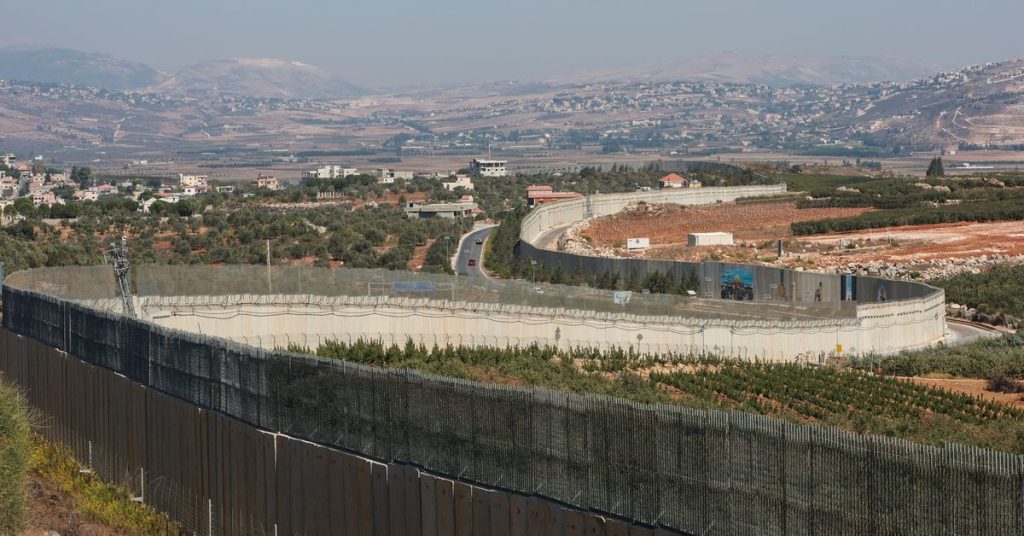
BEIRUT/JERUSALEM (Reuters) – Israeli Prime Minister Yair Lapid said on Tuesday that Lebanon and Israel had reached a historic agreement delineating a disputed maritime border between them after years of US-brokered negotiations.
Although the agreement’s scope is limited, the agreement could represent an important compromise between nations with a history of war and hostility, opening the way for offshore energy exploration and relieving the source of recent tensions.
“This is a historic achievement that will enhance Israel’s security, inject billions into the Israeli economy, and ensure the stability of our northern borders,” Lapid said in a statement.
Register now to get free unlimited access to Reuters.com
In Lebanon, President Michel Aoun said that the terms of the final US proposal are satisfactory and expressed his hope that the deal will be announced as soon as possible.
The agreement aims to resolve a territorial dispute in the eastern Mediterranean in a region where Lebanon aims to explore for natural gas. Israel already produces natural gas in nearby fields.
It is drawing a border between Lebanese and Israeli waters for the first time and also setting up a mechanism for both countries to obtain revenues from an offshore gas field stretching across the border.
The deal does not address the common land border between them.
Lebanese negotiator Elias Bou Saab told Reuters that the latest draft “takes into account all Lebanon’s requirements and we believe that the other side should feel the same.”
It was also backed by the heavily armed and Iranian-backed Lebanese group Hezbollah, which until recently was threatening to attack Israeli gas facilities, according to officials.
A senior Lebanese government official and an official close to Hezbollah said the group had agreed to the terms of the deal and considered the negotiations “finished.” Hezbollah has not officially commented yet.
While Israel has moved forward with the production and export of natural gas, Lebanon’s efforts have been stymied by political dysfunction.
Finding gas would be a huge boon for Lebanon, which has been mired in a financial crisis since 2019, and could fix Lebanon’s long-standing failure to produce enough electricity for its residents.
Lapid, who faces a November 1 election, plans to seek approval on Wednesday for the deal from his security cabinet and then the cabinet, before it is reviewed by parliament. An Israeli official said final approval was expected within the next three weeks.
The Institute for National Security Studies, a think tank at Tel Aviv University, described the deal as a “win-win situation.”
“The agreement between Israel and Lebanon will constitute a fundamental positive change in the relations between the two countries … and may open the door for further changes in the future relationship between them,” she said in a report.
Register now to get free unlimited access to Reuters.com
(Reporting by Taymour Al-Azhari and Laila Bassam from Beirut). Ari Rabinovitch and Mayan Lobel in Jerusalem; Written by Timur Azhari, Tom Perry, and Maian Lobel. Editing by Leslie Adler, Chris Reese, Raju Gopalakrishnan, Philippa Fletcher and Thomas Janowski
Our criteria: Thomson Reuters Trust Principles.

“Travel specialist. Typical social media scholar. Friend of animals everywhere. Freelance zombie ninja. Twitter buff.”





More Stories
Macron rejects left-wing bid to appoint PM before Olympics
Dogs can smell human stress and make decisions accordingly, study says: NPR
Hamas and Fatah sign declaration to form future government as war rages in Gaza